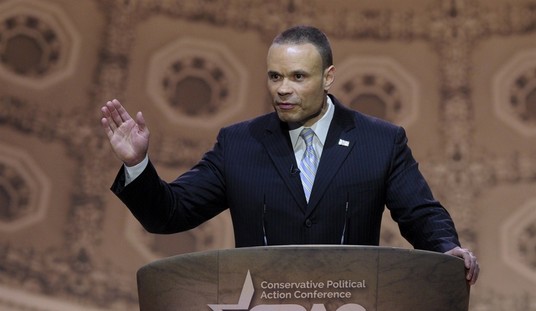Note: This piece was co-authored by H. Sterling Burnett, Ph.D.
In the world of science, debates rarely end. Only after years of careful analyses, rigorous scientific studies, and the replication of findings can scientists safely declare they believe a theory has likely been proven. And even then, real scientists know virtually every scientific conclusion is subject to further debate and experimentation as additional insights are discovered.
On the topic of the science of climate change, including the causes and potential dangers, the debate is still very much alive and well. But the current climate-change debate held in most public forums, including in Washington, D.C., has never been particularly scientific (that is, adhering to the scientific method), and after three decades of debating the claims made repeatedly by climate alarmists such as Al Gore, it’s clear the debate is over, and the alarmists have lost.
What Alarmists Believe
The current climate alarmist debate involves only two groups: alarmists and skeptics. The alarmists are those who say climate change is happening, that it is now and has for decades been caused by humans’ greenhouse-gas emissions, that the warming is causing or will soon cause catastrophic problems, and, most importantly, that the evidence is overwhelming and beyond dispute. Anyone who doesn’t believe in all four of those assertions falls, whether they realize it or not, into the “climate skeptic” camp, a rather large tent.
If this description of the debate surprises you, it’s only because for 30 years alarmists have consistently and improperly been claiming climate-change skeptics are “deniers” — a name that was deliberately chosen because of its link to Holocaust “deniers” — who are stupid, corrupt, or both. They’ve spread countless falsehoods about what global warming actually is and have repeatedly made untrue claims about what skeptics believe.
Recommended
Is the Science Settled?
One thing is abundantly clear, however: For alarmists, anyone who doesn’t accept the climate-change dogma, which, again, includes all four of the claims made above, is dangerous.
“This is scary stuff, above and beyond everything else that scares us about Republicans,” Sen. Bernie Sanders (I-Vt.) said in 2016. “You have a major political party which has turned its back on science regarding climate change. … It is caused by human activity. And it is already, not tomorrow but today, causing massive problems all over this country.”
So certain are the climate alarmists of their position that many of them have suggested it could be appropriate to imprison climate-change skeptics. Pop-culture scientist Bill Nye suggested as much in an April 2016 interview.
“Was it appropriate to jail the guys from Enron?” Nye said. “We’ll see what happens. … In these cases, for me, as a taxpayer and voter, the introduction of this extreme doubt about climate change is affecting my quality of life as a public citizen. So, I can see where people are very concerned about this, and they’re pursuing criminal investigations as well as engaging in discussions like this.”
The climate-alarmism debate is clear, so the only question is: Are the alarmists right? On this point, the facts are apparent: Although there is still a debate over whether the climate is still warming significantly, what the causes of the warming are, and whether warming will cause more harm than good, it is now certain that the evidence is not anywhere near overwhelming enough for Gore, Sanders, and Nye to make their most important claim: that the debate is over and that the theory of human-caused climate change has unquestionably been resolved in climate alarmists’ favor.
The Evidence: Climate Models
Let’s start with the basics. If climate alarmists are correct that the debate is over, why can’t they prove it using scientific data? Because climate is incredibly complex, climate scientists can’t run laboratory experiments to test hypotheses in the same way they might in other areas of research. Instead, they are forced to rely on computer climate models, which have been remarkably bad at proving a link between humans and carbon-dioxide emissions, as David Henderson and Charles Hooper noted for the Hoover Institution in April.
“The ultimate test for a climate model is the accuracy of its predictions,” Henderson and Hooper wrote. “But the models predicted that there would be much greater warming between 1998 and 2014 than actually happened. If the models were doing a good job, their predictions would cluster symmetrically around the actual measured temperatures. That was not the case here; a mere 2.4 percent of the predictions undershot actual temperatures and 97.6 percent overshot, according to Cato Institute climatologist Patrick Michaels, former MIT meteorologist Richard Lindzen, and Cato Institute climate researcher Chip Knappenberger. Climate models as a group have been ‘running hot,’ predicting about 2.2 times as much warming as actually occurred over 1998–2014.”
Numerous other studies have been conducted showing the failure of most climate models. Earlier in 2017, a paper in Nature: Geoscience found climate models have failed to explain the global warming pause experienced in the early 21st century.
“In the early twenty-first century, satellite-derived tropospheric warming trends were generally smaller than trends estimated from a large multi-model ensemble,” lead author Benjamin Santer and his team wrote.
“Over most of the early twenty-first century ... model tropospheric warming is substantially larger than observed … partly due to systematic deficiencies in some of the post-2000 external forcings used in the model simulations,” they added.
The authors of a September paper in Nature Geoscience recently admitted what those following the scientific method have long discussed; climate models have grossly overestimated the amount of warming the earth has experienced due to human carbon dioxide emissions. As Oxford’s Myles Allan, one of the authors told The Times, “We haven’t seen that rapid acceleration in warming after 2000 that we see in the models. We haven’t seen that in the observations.”
The most likely reason for this is because the earth simply isn’t as sensitive as models assume to carbon dioxide and other greenhouse gas emissions, primarily because they grossly overstate feedback effects built into the models.
If climate models don’t get the most basic prediction they make, that of global temperatures, correct, one could reasonably ask why people should trust their predictions concerning climate changes purported to result from rising temperatures.
The Evidence: Alleged Dangers of Warming
Climate alarmists’ numerous predictions about extreme weather have also been utterly incorrect.
Authors of a paper in the August 2016 edition of the journal Theoretical and Applied Climatology found “stronger storms are not getting stronger,” and the researchers also noted changes in the strength, seasonality, and the increase in the amount of heavy rainfall events could be explained by natural variability.
Alarmists can’t even definitively prove warmer temperatures are causing more harm than good. Increased carbon dioxide and warmer temperatures have scientifically been proven to help plant growth, which means there is more food for humans and animals. In fact, it is widely known that historically, cooler conditions are much more dangerous than warmer conditions for life on Earth.
A 2015 article in the influential journal The Lancet examined health data from 13 countries, accounting for more than 74 million deaths, and found relatively cold weather, directly or indirectly, kills 1,700 percent more people than warm weather.
Alarmists’ Response
Of course, climate alarmists refuse to accept any of these well-established facts, because it would undermine the foundation of everything they’ve claimed for three decades. In the face of facts, they hurl unjustifiable accusations and insults in an attempt to sway readers.
Writing for Forbes in July, climate alarmist Ethan Siegel, like many other of Gore’s disciples, claimed similar arguments we had made in the past are “lies” and distortions.
“The only reason to write about validating climate skepticism is to reinforce pre-existing beliefs,” Siegel wrote.
Then, to bolster his assertion, Siegel provided a number of alleged proofs of skeptics’ “lies,” some of them laughable. For instance, in response to a claim made about there being fewer hurricanes (despite alarmists’ many predictions that there would be more hurricanes and more-intense storms), Siegel pointed to a study that admitted there were fewer hurricanes, and he acknowledged that fewer large hurricanes had made landfall in the United States in recent years, but he insisted alarmists were right because of a single study that reported “wind speeds in tropical cyclones” increased from 1984 to 2012. By how much, you may ask? Three mph, a paltry figure that’s within the margin of error for such measurements, thus proving absolutely nothing.
Siegel also claimed, “The effects of ocean acidification, rising sea levels and the severe economic consequences, among many others, show that the negative consequences of global warming for humanity will far outweigh the positives,” but then provided absolutely no proof that would undermine the findings of the article in The Lancet, to which he was attempting to respond, that shows cold weather is much more dangerous.
The scientific debate over the causes and possible problems related to climate change is far from over, but the debate over the argument made repeatedly by climate alarmists that the evidence is overwhelming is now settled, and alarmists such as Gore and Siegel have lost.
The only reason we continue to hear these outlandish, unscientific assertions is because radical environmentalists depend on them to continue their push for extreme economic, political, and social changes — many of which were also made in the 1970s, when numerous alarmists predicted a new ice age was just around the corner.
*This is a modified version of an article that first appeared in The Blaze.
























Join the conversation as a VIP Member